Having a puppy running around you is always entertaining. Owning a puppy doesn't mean just giving them a place to relax or petting them. You must think about all the responsibilities, fun, and downsides. Raising a puppy involves puppy proofing your home, feeding, grooming, training, physical and mental stimulation, and taking puppies for check-ups to a vet.
Are you ready for a puppy?
Be prepared to consider a lot of stuff before you bring home your puppy. Ask yourself the following questions before getting a furbaby:
- Can you afford to own a puppy in terms of food, shelter, accessories, vaccination, and vet fees?
- Do you have the resources needed for proper training of your little fur baby?
- Is everyone in your house fully on board with the idea of having a new pet?
- Do you have small kids at home and still manage to have a furry child?
- Do you already have another pet? Will it tolerate this new furry member?
- Does your house have the space needed for keeping a puppy?
- C you dedicate to your puppy each day? You know puppies need a lot of time and attention.
- Will your puppy get some company at home if you have long working hours?
- Can you commit to a long-term relationship with your puppy?
- Will you be able to comfort your pup while they try to adjust to the new environment?
- Are you ready for bathroom accidents and other unpleasant stuff?

If you have answered yes to most of the concerns above, then you are ready to bring home a puppy and raise him.
Puppy proof your home
As responsible dog owners, we all want our puppies to be safe and happy. Before bringing home the puppy, you must prepare your home and puppy-proof every area.
Training and socialization
Your puppy needs training, guidance, and ample opportunities for socialization. You should provide them with activities for physical and mental stimulation.
Try to socialize your new furry member as much as possible. Make sure your little guy gets to encounter all kinds of pets, smells, sights, and objects in different places. Introducing new people will help your puppy stay well-mannered.
Here are some amazing tips to help train and socialise your puppy:
- The easiest way to socialize your puppy is to take him for a daily walk. You can use the track of dog parks for walking.
- Begin training your furry friend as early as possible.
- Puppies have short attention spans. Try to keep puppy's training sessions brief and sweet.
- Puppies learn best with reward-based training.
- Do not train your puppy on full tummy. The ideal time for a training session is just before mealtime when your puppy is hungry.
Your puppy might need the following training.
- Obedience training
- Crate training
- Housebreaking and potty training
- Leash training

Puppy nutrition
There is no magic formula and every puppy has different needs. Here are a few tips for feeding a healthy and nutritious diet to your puppy:
- Feed your puppy 3 to 4 times a day until the age of 12 weeks.
- Puppies have a sensitive stomach. So, it's better to start with one protein source.
- Avoid harmful chemicals and try to feed organic ingredients to your puppies.
- You need to balance calcium and phosphorus content in your puppy's daily diet.
- Don't overdo the organ meats as excessive amounts of organ meats can cause stomach upsets in puppies.
- Muscle meat should make up about 35% to 50% of your puppy's diet.
- Make sure your puppy has plenty of clean and fresh water available all the time.

Remember that food requirements vary with your puppy's breed, age, gender, metabolism, and activity level.
Games and exercises for puppies
Puppies usually find ways to occupy themselves in the absence of toys and social interaction. It's better to offer them physical and mental stimulation with exercises, new games, and fun activities.
- Fetch Games: Puppies are great chasers and fetch games will help to burn their pent-up energy. It enables your puppy to remain physically and mentally stimulated.
- Tug of War: Puppies love tug of war almost as much as we do. It should be a controlled game and they release when you want them to. Remember to supervise the game if kids are playing.
- Find The Treat: This is a fun game for your puppy but a more relaxed one for you. It is played by hiding your treats around the house. This activity is a great way to keep puppies occupied and steal away an hour for yourself.
- Free play in a fenced yard: Your puppy will enjoy playing and running in a fenced yard.
- Frisbee Toss: Frisbee game is a great energy burner for your puppy. It requires skill, coordination, and timing.

Grooming your puppy
Let’s have a look at your puppy's grooming needs:
- Coat brushing: Your puppy needs regular brushing, at least once or twice a week. This keeps their coat in good condition and prevents mats or tangles.
- Bathing: Give an occasional warm bath to your puppy and use a good quality puppy shampoo and conditioner. Over-bathing is not recommended for puppies, especially in winters.
- Eye cleaning: Your puppy's eyes should be clear with no discharge or redness.
- Nail trimming: Trim your puppy's nails regularly. Short nails will keep your puppy's paws in good condition.
- Teeth brushing: Brush your puppy's teeth at least twice a week. This will remove bacteria and tartar buildup. Always use a toothbrush and toothpaste specifically designed for puppies.

During the grooming session, look inside your puppy's mouth and ears. Pups can start to develop skin warts and lumps at this age. Also, check for sores, rashes, signs of infection, or inflammation on your puppy's skin.
Vaccination and vet visit
Your puppy also require vet visits and vaccines. These vet checkups give you a chance to track your puppy’s growth and discuss any questions about puppy's health with your vet.
Vet examinations and vaccination are a key part of preventive care. Your vet will inspect your dog from head to tail.
- Your vet will examine your puppy's ears and eyes for redness or discharge.
- He will listen to your puppy's heart and lungs during the exam for any potential problems.
- Your vet will examine your puppy's coat and skin. He may be able to identify any lumps, itchy spots, excessive shedding, tangles, or mats.
- He will check your puppy for ticks and fleas.
- Your puppy will also receive his vaccinations. Make sure to take your vet’s advice on a proper vaccination schedule.
- Your vet may make suggestions for your puppy's nutrition and dental care.
- He may also suggest activities and medications specific to your puppy's health status.

Pet Parent Tip: Bring some healthy treats for your puppy before and during the exam. This will help his association for future visits.
Try to stay calm and positive when you visit your vet’s office for the first time.
Dog classes and daycare
If you are unable to devote much time, it’s better to enroll your puppy in puppy classes. Your puppy will learn basic manners and how to behave around other people and pets. This place will be a great option for your puppy to learn basic obedience and socialization.
Dog daycare is beneficial for puppies as it offers plenty of different socialization options, including new people, other pets, and new smells and sounds.
Pro Tip: Remember that all puppies are individuals. So, what goes well for one puppy may not work for the other. We, as puppy owners, need to be a little more creative.

Puppy sleeping arrangement
A puppy can sleep on the floor but will be more comfortable if you could invest in a dog bed that he can call his own.
It is always great to have an assigned space for puppies in your home. The dog bed serves as a cozy safe space for your four-legged friend. This gives your puppy a sense of protection.
Must have products for puppies
There are a few essential items you will need to get started.
- A comfy bed: Puppies need a comfortable and cozy bed. You also need to provide them with personalized blankets.
- Dog crate: Your puppy needs a dog crate for house training.
- Food and water bowls: You also need personalized bowls for puppies made of safe material.
- Food bowl mats: You also require beautiful and stylish food bowl mats to keep your floors clean.
- Toy chest: You need a toy box to keep all puppy toys.
- Toys: Your puppy needs a few interactive and adorable toys to get started.
- Puppy food and treats: You also need healthy puppy food and delicious treats.
- Dematting Comb
- Medium-size pin brush and wire slicker brush
- Grooming rake for removing shedding hair
- Grooming scissors for tidying up the coat
- Nail clippers
- Canine toothbrush and toothpaste
Final Thoughts
Puppies bring an amazing amount of happiness to our lives. When you bring home an adorable little creature, you are committing to a long-term relationship.
You can support your puppy to live his best life! Take advantage of this age and teach your puppy new things and build their stamina. Your puppy needs ample socialization and a nice training foundation to move into adulthood.
A healthy and happy puppy can save you from a lot of stress in the long run. If you are not sure what is good for your puppy - we'd be happy to help!
Happy petting!





